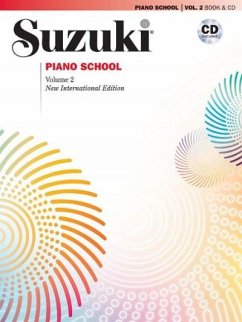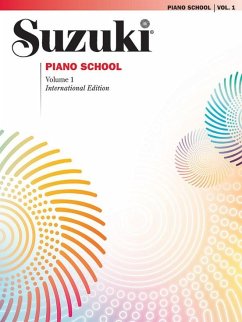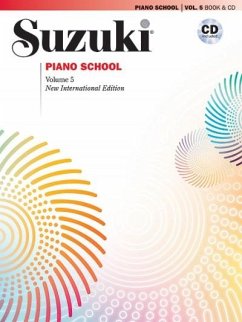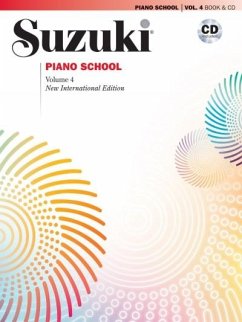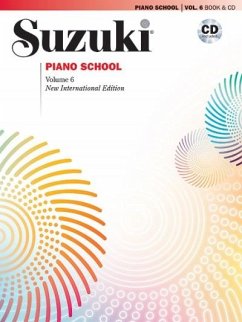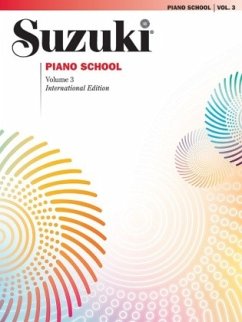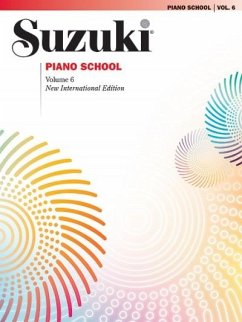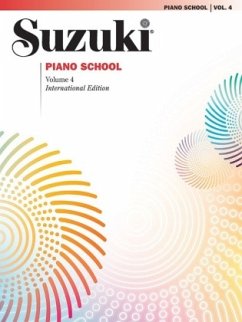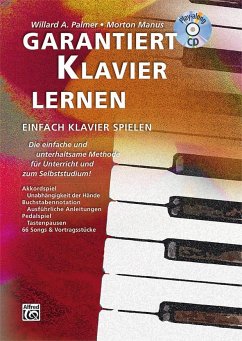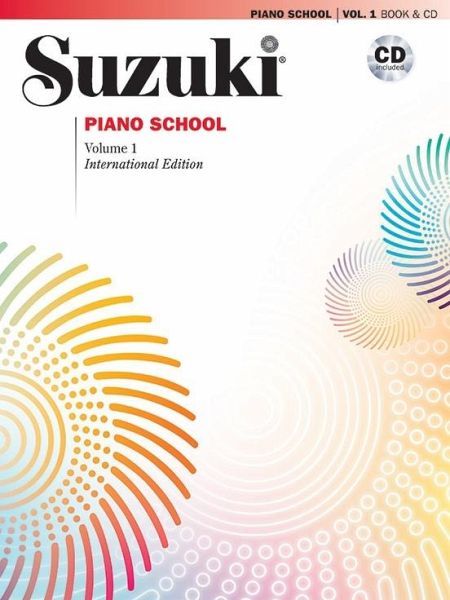
Suzuki Piano School Vol. 1 New International Edition
New International Editions
Mitarbeit: Suzuki, Dr. Shinichi;Solo: Azuma, Seizo
Versandkostenfrei!
Sofort lieferbar
33,95 €
inkl. MwSt.

PAYBACK Punkte
0 °P sammeln!
The New International Edition of Suzuki Piano School, Volume 1 includes French, German and Spanish translations as well as a newly recorded CD performed by internationally renowned recording artist Seizo Azuma. Now the book and CD can be purchased together or separately. While the music selections in Volume 1 remain the same as the earlier edition, the spacious new engraving with minimal editing generally keeps only one piece per page. Instruction material in many pieces from Volume 1 has been removed in lieu of right-hand studies at the top of the page and left-hand studies at the bottom. Tem...
The New International Edition of Suzuki Piano School, Volume 1 includes French, German and Spanish translations as well as a newly recorded CD performed by internationally renowned recording artist Seizo Azuma. Now the book and CD can be purchased together or separately. While the music selections in Volume 1 remain the same as the earlier edition, the spacious new engraving with minimal editing generally keeps only one piece per page. Instruction material in many pieces from Volume 1 has been removed in lieu of right-hand studies at the top of the page and left-hand studies at the bottom. Tempo markings are now included on many pieces. Titles: "Twinkle, Twinkle, Little Star" Variations (Shinichi Suzuki) _ Lightly Row (German Folk Song) _ The Honeybee (Bohemian Folk Song) _ Cuckoo (German Folk Song) _ Lightly Row (German Folk Song) _ French Children's Song (French Folk Song) _ London Bridge (English Folk Song) _ Mary Had a Little Lamb (American Nursery Song) _ Go Tell Aunt Rhody (Folk Song) _ Au Clair de la Lune (J. B. Lully) _ Long, Long Ago (T. H. Bayly) _ Little Playmates (F. X. Chwatal) _ Chant Arabe (Anonymous) _ Allegretto 1 (C. Czerny) _ Goodbye to Winter (Folk Song) _ Allegretto 2 (C. Czerny) _ Christmas-Day Secrets (T. Dutton) _ Allegro (S. Suzuki) _ Musette (Anonymous).



